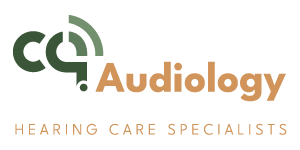Contact Us
We would love to speak with you.
Feel free to reach out using the below details.
Visit our main clinic
- T33 & 34A, City Centre Plaza, 24 Fitzroy Street, Rockhampton, QLD 4700
Get In Touch
- Phone: (07) 4848 6528
- Email: reception@cqaudiology.com.au
Trading Hours
- Mon-Fri 9:00AM - 5:00PM
- Sat 9:00AM - 12:00PM
Get a callback
Fill out the form below and we will contact you as soon as possible!
CQ Audiology Visiting Sites
BARCALDINE
Barcaldine 60 & Better Program
13 Willow Street
QLD 4725
BILOELA
Ace Medical Centre
48 Grevillea Street
QLD 4715
BLACKALL
Blackall Hospital
189 Landsborough Highway
QLD 4472
BLACKWATER
North Blackwater General Practice
14 Blain Street
QLD 4717
EMERALD
Lot 1 Pilot Farm Road
QLD 4720
MOUNT MORGAN
41 Morgan Strreet
QLD 4714
ROCKHAMPON CITY
T 33 & 34A City Centre Plaza
24 Fitzroy Street
QLD 4700
TAMBO
Tambo Multi Purpose Centre
26 Arthur Street, Tambo Queensland 4478
LONGREACH
North & West Queensland Primary Health Sercvies
19 Duck Street, Longreach Queensland 4730
YEPPOON
Keppel Bay Medical Centre
Shopt 26, Keppel Bay Plaza
64-67 James Street
QLD 4703

Experience Unmatched Clarity with Hearing Test Rockhampton City.
Why Do I Need a Hearing Test?
Are you looking for hearing test Rockhampton City? Have you ever considered how vital your hearing is to your everyday life? From enjoying conversations with loved ones to staying alert to your surroundings, your ability to hear impacts numerous aspects of your daily routine. A hearing test isn’t just for those who suspect a problem; it’s a crucial tool for maintaining your auditory health. Early detection of hearing issues can lead to interventions that may preserve your hearing longer. Now, you might wonder what signs to look for or how the testing process actually works. Let’s explore the importance of these tests and uncover some reasons why they might be more necessary than you initially thought.
Understanding Hearing Tests
To grasp the health of your hearing, it’s essential to understand what happens during a hearing test. When you go for this test, an audiologist assesses your ability to hear various sounds. They’ll check how well you can hear different pitches and volumes, helping identify any hearing loss and its severity.
During the test, you’ll wear headphones through which sounds at different frequencies are played. You’ll need to respond whenever you hear a sound, which allows the audiologist to determine the softest levels of sound you can hear at each frequency. This process maps out your hearing sensitivity across a range of sounds, creating what’s known as an audiogram.
The audiogram is crucial because it visually represents your hearing ability. It shows the softest sounds you can hear at different pitches or frequencies, indicating any deviations from normal hearing. Understanding your audiogram is key to addressing any hearing issues effectively.
Signs You Need a Test
Now that you understand what a hearing test entails, let’s explore the signs indicating you might need one. If you’re finding it difficult to follow conversations, especially in noisy environments, it might be a hint that your hearing isn’t as sharp as it used to be. This difficulty can often make you feel left out or behind in discussions, both socially and at work.
Additionally, a persistent ringing in your ears, known as tinnitus, is a common symptom that shouldn’t be ignored. While it can be temporary, ongoing ringing warrants a professional evaluation. You might also feel that your hearing limitations are holding you back from engaging fully in your social or professional life. If you’re often asking people to repeat themselves or leaning in to hear better, these are clear signs that it’s time for a check-up.
For children, delayed speech or language skills can be particularly concerning. If you’re worried about your child’s hearing, observing their responses in everyday situations can provide clues. Are they not responding to calls, or do they seem unusually loud when speaking? These could be indicators that a hearing test is necessary.
Types of Hearing Tests
Understanding the types of hearing tests available is crucial for determining the right one for your specific needs. One common method is pure tone audiometry, which measures your ability to hear sounds at various pitches and volumes. It’s typically used for adults and older children and involves wearing headphones that emit tones at different frequencies. You’ll indicate when you can hear the sounds, helping to pinpoint your hearing thresholds.
Another key test is tympanometry, which assesses the health of your middle ear. It checks for issues like fluid build-up or eardrum perforations by evaluating how your eardrum moves in response to changes in air pressure. This test isn’t about hearing sensitivity but rather about the condition of your middle ear, which can affect your overall hearing.
These tests are vital as they help identify the type and severity of hearing loss you might be experiencing. Knowing exactly what’s going on with your hearing can guide potential treatment options and ensure you receive the appropriate care to improve your quality of life. So, it’s important you don’t overlook the need for periodic evaluations, as they’re key to maintaining your auditory health.
Testing for Babies and Children
While adults often undergo specific hearing tests, it’s equally important to evaluate the hearing of babies and children with tailored assessments. You’ll find that the methods used for your little ones differ significantly from those for adults.
For babies and young children, healthcare providers use both behavioral and objective tests to accurately assess hearing abilities. These tests are crucial because they measure the function of the inner ear and hearing nerve, which are essential for detecting any issues early on.
Early detection is vital, as hearing is a critical component of language and speech development. If there’s a problem that goes unnoticed, it could significantly affect your child’s ability to learn and communicate effectively. Objective tests are particularly useful as they can identify hearing problems without needing verbal feedback from the child, which is ideal for infants or toddlers who can’t express what they’re experiencing.
What an Audiogram Shows
An audiogram reveals your hearing thresholds across various frequencies, helping pinpoint the degree and origin of hearing loss. This detailed chart is a key tool in understanding how well you can hear different pitches or tones. During a hearing test, you’ll listen to sounds at various frequencies, from low to high. The softest sounds you can hear at each frequency are marked on the audiogram, giving a visual representation of your hearing ability.
The audiogram also compares results from air and bone conduction tests. Air conduction measures how well sound travels through the outer and middle ear to the inner ear. Bone conduction, on the other hand, bypasses the outer and middle ear by sending vibrations directly to the inner ear through the bones of the skull. This comparison is crucial as it helps to distinguish whether hearing loss is due to problems in the air conduction pathway (outer/middle ear) or the sensorineural components (inner ear).
Identifying Types of Hearing Loss
To properly address your hearing concerns, it’s essential to identify the type of hearing loss you might be experiencing. There are several forms, each impacting different parts of your ear and affecting your hearing in unique ways.
Conductive hearing loss occurs when there’s a problem conducting sound waves anywhere along the route through the outer ear, tympanic membrane (eardrum), or middle ear. This type can often be treated with medication or surgery.
On the other hand, sensorineural hearing loss happens when there’s damage to the inner ear or the auditory nerve. This type is usually permanent and might require hearing aids or cochlear implants to manage.
If you’re facing issues from both conductive and sensorineural hearing loss, you have what’s known as mixed hearing loss. It combines elements of both types, meaning the treatment might involve a mix of approaches.
Additionally, hearing loss can be categorised as congenital or acquired. Congenital hearing loss is present at birth and could be due to genetic factors or complications during pregnancy. Acquired hearing loss develops over time, often due to exposure to loud noises, aging, or infections.
Understanding the specific type of hearing loss you have is crucial for effective treatment and improving your quality of life.
Why Choose CQ Audiology for hearing test?
After understanding the types of hearing loss, you might wonder where to get a reliable hearing test; CQ Audiology is your top choice for several reasons. First, they’re equipped with state-of-the-art technology that ensures accurate results. You won’t have to worry about the precision of your hearing test as their equipment is cutting-edge.
Furthermore, the audiologists at CQ Audiology aren’t just experienced; they truly tailor the testing process to your individual needs. They take the time to understand your hearing concerns and provide personalised care, which makes all the difference in your comfort and the effectiveness of the test.
The clinic itself is designed to make you feel at ease. It’s not only welcoming but also conveniently located, making it easy for you to access without hassle. This is crucial, as you don’t want the stress of a difficult journey before your test.
Lastly, the reputation of CQ Audiology stands out. With glowing patient feedback and a known commitment to excellence, you can trust that you’re making the right choice. Choosing CQ Audiology means you’re prioritising your hearing health with the best possible care.
Conclusion
You’ve learned why hearing tests are vital for catching early signs of hearing loss and maintaining overall well-being. Whether it’s spotting the symptoms, understanding the different types of tests, or interpreting an audiogram, staying informed helps you act swiftly.
Remember, regular checks are key for everyone, from babies to adults. Choosing CQ Audiology ensures you’re getting expert care tailored to your needs. Don’t wait—keep your communication clear and your life fully engaged by scheduling your hearing test today.
DISCLAIMER: The content on our site is intended for educational purposes only and should not be interpreted as an endorsement or recommendation of any treatments or products without a comprehensive hearing assessment. Users should seek professional advice and fully understand any potential side effects or risks before starting any treatment. Products mentioned on our site are not available for purchase by the public without prior consultation with a hearing health expert.
